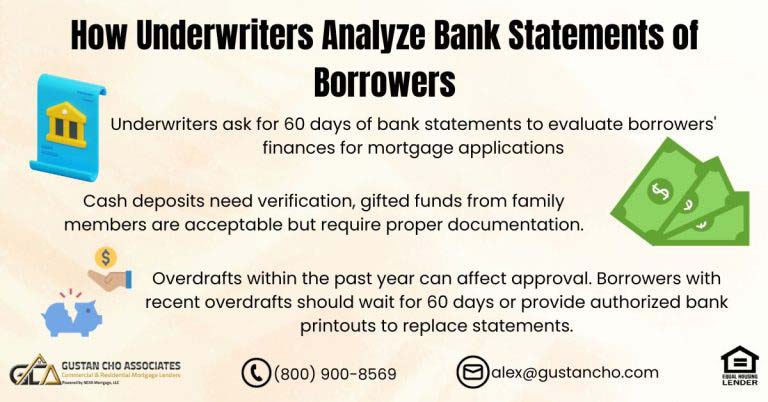In this blog, we’ll explore the process of working with a loan officer during your mortgage application. Choosing a loan officer and lender carefully is crucial, as the mortgage process can be intimidating. Partnering with a loan officer you can communicate effectively with is essential, making this more than just a necessity—it’s imperative.
The mortgage landscape can often be perplexing, with many borrowers needing to be made aware of the ever-evolving mortgage guidelines and inner workings of the mortgage industry. The key to a smooth mortgage process is finding a loan officer skilled in clearly explaining and guiding borrowers through every step, from application to closing, minimizing stress and confusion. Engaging effectively with a loan officer is arguably the most critical aspect of securing a mortgage successfully.
What is the Role of a Mortgage Loan Officer?
Working with a Loan Officer is fundamental during the home buying process, as they help prospective homeowners secure the necessary financing to purchase property. Here’s an overview of the pivotal duties and aspects of a mortgage loan officer’s role:
Assessment of Borrower Eligibility
Mortgage loan officers meticulously review loan applications to evaluate the creditworthiness of potential borrowers. This involves scrutinizing financial details such as income levels, credit scores, debt-to-income ratios, and comprehensive financial history.
Loan Origination and Processing
Loan officers assist borrowers in selecting the most suitable mortgage product that aligns with their financial circumstances and the specifics of the property in question. They are also responsible for collecting all required documentation to advance the mortgage application.
Explanation of Loan Terms
These professionals clarify the intricate terms, conditions, rates, and repayment options of mortgage loans, ensuring borrowers fully comprehend their responsibilities and commitments.
Liaison Between Parties
They actively update all parties on progress and address issues arising during the loan process.
Compliance and Regulations
They are tasked with ensuring that all mortgage applications adhere to local, state, and federal regulations, verifying the accuracy and legality of all documentation, and ensuring that procedures comply with established legal and organizational standards.
Client Relationship Management
As a loan officer, you must establish and nurture relationships with current and prospective clients to achieve your financial objectives. Effective relationship management often involves outreach to previous clients and referrals, which helps forge a robust network for future business opportunities.
Problem Resolution
Loan officers play a key role in identifying and resolving any problems that may occur during the loan process, including issues related to credit reports, discrepancies in application information, and other obstacles that might impede loan approval.
In essence, mortgage loan officers are indispensable in demystifying the home-buying experience, offering expert advice, and providing the necessary financial solutions to ensure clients can purchase their homes with minimal stress.
Need Expert Guidance During the Mortgage Process? Our Loan Officers Are Here to Help!
Contact us today to get expert assistance and ensure your loan process goes smoothly from start to finish.
Communication With Your Loan Officer
When working with a loan officer, borrowers must be able to communicate with them at any time. Effective communication is essential given that the mortgage process can be perplexing and complex, often complicated by ever-changing mortgage regulations. Each loan officer has a unique method of interacting with clients.
I have developed a specific system for engaging with mine. Notably, more than 75% of our clients have either received a last-minute mortgage denial from another lender or are experiencing significant stress due to the complexities of the mortgage process.
Proper Qualification Of Borrowers Prior To Issuing Pre-Approval
When working with a loan officer, borrowers often encounter various challenges that can lead them to consider switching their service to another provider. Here are some common complaints I hear from those who have become frustrated with their first loan officer and lender and wish to transfer their loan process to me:
- Delayed Responses: Borrowers frequently report that their loan officer needs to promptly return phone calls or emails.
- Lack of Direct Communication: Some loan officers may delegate communication to an assistant or a loan processor instead of direct interaction.
- Limited Communication Methods: Often, loan officers restrict their communication to texts and emails, avoiding phone conversations.
- Availability Issues: It’s common for loan officers to be unavailable after business hours, making it difficult for borrowers to communicate with them outside standard office times.
- Excessive Documentation Requests: In some instances, loan officers continuously request additional documentation beyond the initial requirements after granting conditional loan approval.
- Protracted Loan Process: The loan process frequently becomes prolonged, with repeated delays in loan closings, largely due to the intricacies of the mortgage process.
These issues can significantly stress borrowers, particularly those who do not need to become more involved in the mortgage process. This highlights the importance of choosing a compatible loan officer when working with one, as a good fit can lead to a smoother and more manageable mortgage process.
Consulting With Loan Officers Before Hiring Them
When working with a loan officer, it’s important to understand that not all lenders follow the same mortgage lending criteria. Even if borrowers satisfy the basic requirements for government or conventional loans, individual lenders might impose additional restrictions known as Mortgage Lender Overlays, which could impact your loan eligibility.
To qualify for an FHA loan with a 3.5% down payment, most lenders require a credit score of at least 580, but some may require 620 or more. This is due to their specific lender overlays concerning credit scores.
Similarly, although HUD does not mandate that borrowers clear outstanding collection accounts and charge-offs to qualify for FHA loans, many lenders might require these debts to be settled before approving a loan.
A crucial point for borrowers working with a loan officer is to verify whether the loan officer is aware of and understands the lender’s overlays. Some loan officers might mistakenly assume qualification based on an initial approval from an Automated Underwriting System without considering these overlays. This oversight can lead to a last-minute mortgage denial, as the borrower must meet the lender’s additional criteria.
Question Loan Officer During The Initial Consultation
When working with a loan officer, it’s important to understand that not all lenders follow the same mortgage lending criteria. Even if borrowers satisfy the basic requirements for government or conventional loans, individual lenders might impose additional restrictions known as Mortgage Lender Overlays, which could impact your loan eligibility.
For instance, while FHA loans generally require a credit score 580 to qualify for a loan with a 3.5% down payment, some lenders might set a higher threshold, such as a 620 credit score. This is due to their specific lender overlays concerning credit scores. Similarly, although HUD does not mandate that borrowers clear outstanding collection accounts and charge-offs to qualify for FHA loans, many lenders might require these debts to be settled before approving a loan.
A crucial point for borrowers working with a loan officer is to verify whether the loan officer is aware of and understands the lender’s overlays. Some loan officers might mistakenly assume qualification based on an initial approval from an Automated Underwriting System without considering these overlays. This oversight can lead to a last-minute mortgage denial, as the borrower must meet the lender’s additional criteria.
Looking for Help with Your Mortgage Loan Process? Our Loan Officers Are Ready to Assist You!
Contact us now to get the support you need and keep things moving smoothly.
Loan Officers Should Always Be Available For Their Borrowers
Working with a loan officer who aligns with your needs is crucial, particularly regarding availability. Due to personal commitments, many loan officers may only provide their personal contact numbers or work during regular business hours, including evenings and weekends. Often, initial communications might be handled by the loan officer but then transitioned to an assistant or a team of assistants for ongoing processes.
Clarifying and agreeing on communication expectations during your first meeting is essential to prevent stress. Borrowers can become highly stressed if they cannot contact their loan officer over the weekend, potentially harming their entire weekend experience. Such unavailability can negatively impact the relationship between the borrower and the loan officer, underscoring the importance of establishing clear communication protocols from the outset.
Working With Gustan Cho Associates
I have been a real estate for many years and did countless closings myself and fully understand being on the other side. The side of the borrower. Here is how to operate my business and work with my borrowers:
- I preach to my loan originators and support staff that we have a great responsibility to all of our borrowers
- Our borrowers are trusting us with all of their financials and are relying on us to make sure that they close on their home loans on time
- It is not just our borrowers who count on us
- Home sellers, real estate agents from both buyers and sellers side, attorneys from both buyers and sellers side, title company
- Open communication is key and a borrower has the right to have their loan officers accessible 7 days a week
- The Team at Gustan Cho Associates is available 7 days a week, evenings, weekends, and holidays for all of our borrowers as well as for all of my loan officers who may have any questions
- Many times I may be on the phone due to my hectic schedule
- However, whenever a borrower calls me and I see their number on my calling ID, the next outbound phone call after I hang up with the person I have been on the phone with will be the borrower who has called me
- The team at Gustan Cho Associates enjoy it when a borrower calls me often and encourage my borrowers to contact me anytime or text me
The team at Gustan Cho Associates represents borrowers throughout the United States from all time zones so I start early and my day is not done until past midnight CDT.
Working With A Loan Officer With Access And Communication
The answer to the above question on how frequently should you communicate with your lender should be often. The loan officer’s job is to take your calls, emails, and texts and answer any and all questions you may have. If you are not getting that type of service, you deserve better and there are plenty of loan officers that will give you the service that you deserve. You are depending and counting on your loan officer and your loan officer has the most private and confidential information which includes financial and personal information as well as countless letters of explanation.
What is the Role of a Loan Officer Assistant?
A Loan Officer Assistant supports the loan officer in handling various aspects of the loan process. Their role is multifaceted, focusing on administrative tasks, client communication, and documentation, which helps streamline the loan approval and management process. Here’s an overview of their key responsibilities:
- Administrative Support: With their assistance, administrative tasks like scheduling appointments, managing the loan officer’s calendar, and organizing files are handled. This lets the loan officer concentrate more on client interaction and approval processes.
- Client Communication: Loan Officer Assistants often serve as a point of contact for clients. They provide clients with updates on their loan status, answer questions, and gather necessary information. This role is crucial in maintaining smooth communication between the loan officer and clients.
- Document Management: They assist in collecting, verifying, and processing loan documentation. This includes preparing and organizing documents needed for loan applications, such as credit reports, employment verification, and property evaluations.
- Loan Processing Support: They help process loans by reviewing them to ensure completeness and accuracy before they are submitted for underwriting. They may also assist in resolving any issues or discrepancies that arise during the loan application process.
- Compliance and Regulations: Another important aspect of their job is ensuring that all processes comply with relevant laws and regulations. They help maintain compliance by keeping up-to-date with changes in lending regulations and ensuring that all documentation and processes adhere to these standards.
- Follow-up and Coordination: They follow up on loan applications and coordinate with other departments, such as underwriting and closing, to ensure that loans move smoothly through various stages towards completion.
Overall, Loan Officer Assistants play a vital role in supporting loan officers, enhancing the efficiency of the loan processing system, and improving the overall customer service experience. Their work not only assists in the administrative and technical aspects of loan processing but also helps build and maintain strong client relationships.
Working With A Loan Officer Who Is Always Available
If a loan officer is too busy to return your phone calls in a timely fashion, he or she needs to rethink taking on more borrowers. We have no lender overlays on FHA, VA, USDA, and Conventional loans. There is no reason why a borrower cannot close on their home loan in 30 days or less. Working with a loan officer is one of the most important factors during the mortgage process. If you are getting the runaround and need a loan officer who is available 7 days a week, evenings, weekends, holidays, and has no lender overlays, please contact us at Gustan Cho Associates at 800-900-8569 or text for a faster response. Or email us at gcho@gustancho.com.
FAQs About Working With A Loan Officer During The Mortgage Loan Process
- What is the role of a mortgage loan officer? A mortgage loan officer helps potential borrowers secure financing to purchase real estate. Their duties include assessing borrower eligibility, guiding through loan origination and processing, explaining loan terms, liaising between parties, ensuring compliance with regulations, managing client relationships, and resolving problems during the loan process.
- How important is communication with a loan officer? Communication with your loan officer is critical. Borrowers should contact their loan officer anytime for updates or clarification on the mortgage process. Effective communication can help alleviate the stress and confusion of constantly changing mortgage guidelines.
- What are common complaints about loan officers? Common complaints include loan officers needing to return calls or emails promptly, insufficient direct communication, being overly reliant on assistants, not being available after business hours, repeatedly requesting additional documents, and delays in the loan process.
- How can you ensure proper qualification before getting a pre-approval? Discussing lender overlays with your loan officer during the initial consultation is crucial. Ask about how these overlays might affect your credit and income profile, how the loan officer conducts business, their availability, and who to contact with questions during the process.
- What should you ask a loan officer during the initial consultation? Important questions include details about lender overlays, the loan officer’s working hours, availability during weekends or after hours, and the contact process for addressing any concerns or queries. This helps establish clear expectations and communication lines.
- Why is working with an always-available loan officer important? Your loan officer’s accessibility can significantly impact your experience and stress levels during the mortgage process. A readily available loan officer can address issues swiftly, keeping the process on track and ensuring you feel supported.
- What is the role of a Loan Officer Assistant? A Loan Officer Assistant supports the loan officer by managing administrative tasks, handling client communications, assisting with document management, supporting loan processing, ensuring compliance with regulations, and coordinating with other departments to smooth the loan process.
- What steps can you take if your loan officer isn’t meeting your needs? If your loan officer needs to be more responsive or meet your expectations, consider escalating your concerns within their institution or seeking an alternative officer or lender who can provide the service and support you require.
- What are the benefits of working with Gustan Cho Associates? Gustan Cho Associates offers accessibility 7 days a week, including evenings, weekends, and holidays. They have a team approach to handle all borrower concerns promptly and have no lender overlays on FHA, VA, USDA, and Conventional loans, aiming for a home loan closure in 30 days or less.
- How can you contact Gustan Cho Associates for more personalized service? You can reach Gustan Cho Associates by calling 800-900-8569, texting for a faster response, or emailing alex@gustancho.com to discuss your mortgage needs with a loan officer who is available according to your schedule.
This blog about Working With A Loan Officer During The Mortgage Loan Process was updated on April 30th, 2024.
Want a Smooth Mortgage Process? Let Our Loan Officers Help You Get Approved!
Contact us today to speak with an expert who will help you through every step.











Next year, my parents plan to move into a new home to be closer to family members. It is helpful that you explain that it can be stressful to handle the mortgage yourself if you aren’t familiar with how complex the process can get. I’ll share this with my parents and help them look into mortgage lenders to find one that’s experienced, knowledgeable, and who they’re willing to work with.